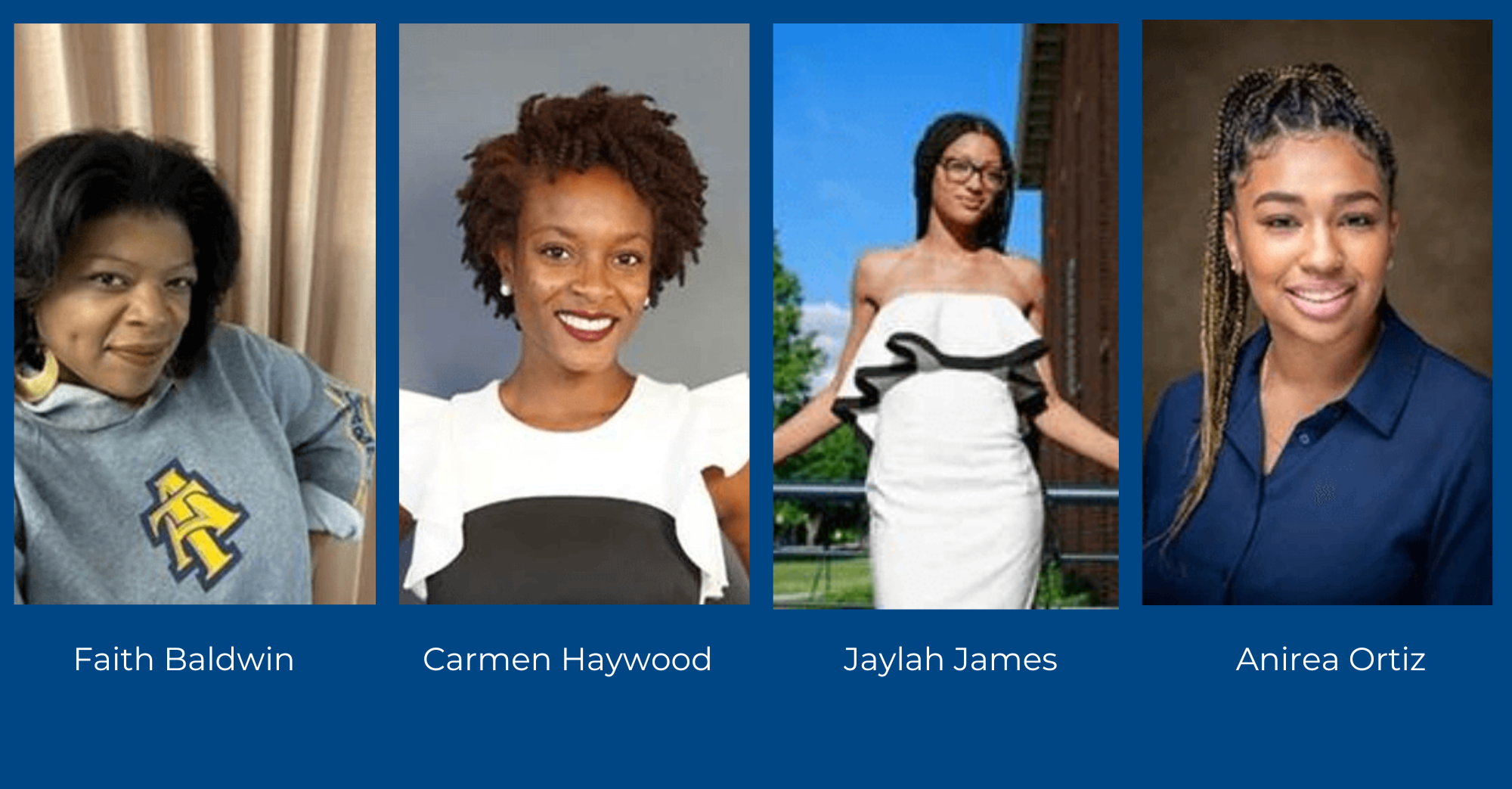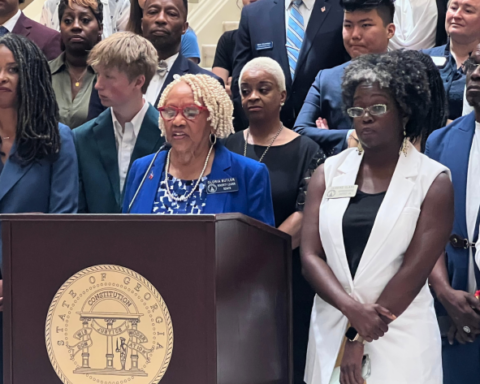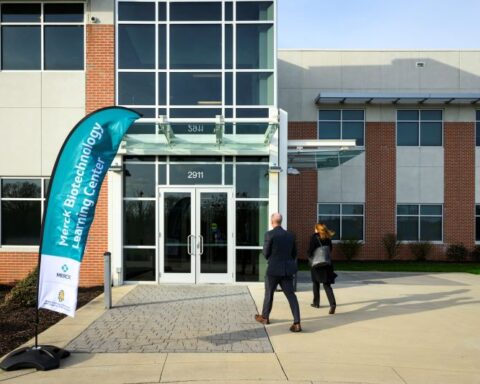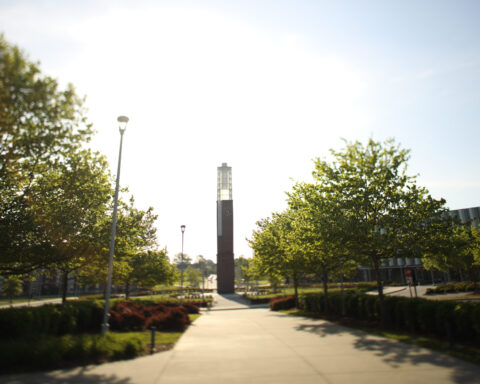Courtesy of North Carolina A&T State University
Three North Carolina Agricultural and Technical State University students and a recent graduate are participating in paid spring semester internships with the North Carolina Department of Health and Human Services as part of its Historically Black Colleges and Universities (HBCUs) and Minority Serving Institutions (MSIs) internship program.
Faith Baldwin, Carmen Haywood, Jaylah James ’22 and Anirea Ortiz are working on a project with the Division of Public Health during their eight-week internships that will include work in their assigned project area, weekly seminars, presentation practice and an immersion event at the end of the internship experience.
The American Rescue Plan Act’s Public Health Workforce Development Initiative is funding their internships.
“With this internship program, NCDHHS builds upon its strong partnership with North Carolina’s HBCUs and MSIs to engage students in public health and human services early, a crucial piece of our workforce investments,” said Mark Benton, NCDHHS deputy secretary for health.
Baldwin, of Bowie, Maryland, is a senior pursuing a B.A. in liberal studies from the College of Arts, Humanities and Social Sciences.
Haywood, of Wake Forest, North Carolina, is a senior pursing a B.S. in management from the Willie A. Deese College of Business and Economics.
James, of Montgomery Village, Maryland, holds a B.A. in psychology from the John R. and Kathy R. Hairston College of Health and Human Sciences.
Ortiz, of Hartford, Connecticut, is a senior pursuing a B.S. in applied engineering technology from the College of Science and Technology.
“Building a strong and inclusive workforce includes training the next generation of public health leaders,” said NCDHHS Secretary Kody H. Kinsley. “People who work in public health and human services are often drawn to making a difference in the world, and we’re grateful these students chose to spend their time dedicated to making that difference with NCDHHS.”
NCDHHS manages the delivery of health- and human-related services for all North Carolinians, especially our most vulnerable citizens — children, elderly, disabled and low-income families. It works closely with health care professionals, community leaders and advocacy groups; local, state and federal entities; and many other stakeholders to make this happen.
The department is divided into 33 divisions and offices that fall under six broad service areas — Health, Opportunity and Well-Being, Medicaid, Operational Excellence, Policy and Communications, and Health Equity. It also oversees 14 facilities: developmental centers, neuro-medical treatment centers, psychiatric hospitals, alcohol and drug abuse treatment centers, and two residential programs for children.





